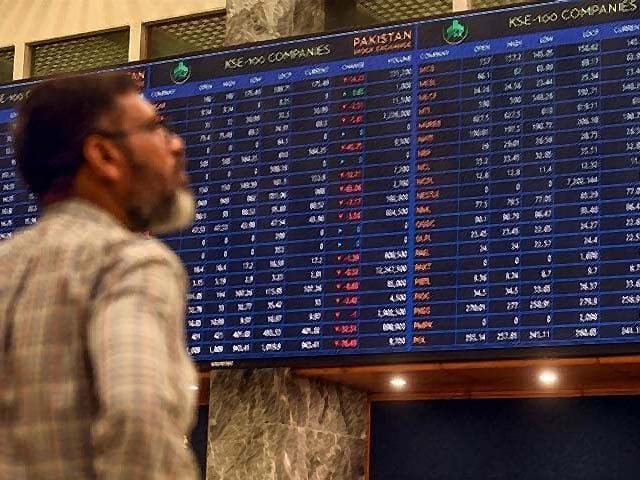Market watch: Tax relief withdrawal drags KSE-100 down
Benchmark index falls 531.23 points to settle at 43,691.68

Sell-off continued at the stock market on Wednesday as the benchmark KSE-100 index dropped 531 points because of a host of negative triggers.
Weak economic cues coupled with discouraging news flow caused a plunge of nearly 2,150 points in the index in the past three sessions.
News about expected withdrawal of tax relief initiatives by the government, aimed at resuming the International Monetary Fund (IMF) loan programne, dented investor sentiment and they resorted to across-the-board selling.
In addition, the hike in electricity tariff by Rs0.89 per unit announced by the National Electric Power Regulatory Authority painted a gloomy picture of the economy and prompted investors to offload their stockholdings.
Index-heavy automobile, cement, oil and fertiliser sectors bore the brunt of profit-booking, which ended the day in the negative zone.
Earlier, trading began on a positive note, however, the index erased all gains with a steep fall in the first hour. Towards noon, market participants made an effort to lift the index upwards, but the attempt went in vain as the market nosedived later in the day, closing below the 44,000-point mark.
At close, the benchmark KSE-100 index recorded a decrease of 531.23 points, or 1.2%, to settle at 43,691.68 points.
Arif Habib Limited, in its report, said the stock market continued its downtrend by shedding a total of 602 points during the session and closed down by 531 points.
Expected withdrawal of tax exemptions by the government under the IMF loan programme, increase in electricity tariff and deferment of increase in petroleum product prices caused selling pressure across the board, particularly in technology, cement, steel, oil and gas marketing sectors.
“Redemptions by mutual funds and insurance companies maintained the selling pressure on stocks,” the report said.
JS Global analyst Maaz Mulla said selling pressure was witnessed across the board at the Pakistan Stock Exchange where the index hit an intra-day low of -602 points and closed at 43,691, down 1.2%.
Traded value stood at $135 million while volumes came in at 363 million shares. TRG Pakistan (-5.2%), Unity Foods (-5.3%), Ghani Global Holdings (+4.8%) and Fauji Fertiliser Bin Qasim (-1.9%) recorded trading in 98 million shares.
Technology and refinery sectors came under heavy selling pressure where TRG Pakistan (-5.2%), NetSol (-5.7%), Avanceon (-5.5%), Attock Refinery (-7%), Pakistan Refinery (-4.7%) and National Refinery (-1.2%) lost ground.
The cement sector followed the same trend where Dewan Cement (-3.1%), Cherat Cement (-1.9%), DG Khan Cement (-1.7%), Lucky Cement (-1.7%) and Maple Leaf Cement (-1.8%) were the major losers.
“Moving forward, we expect bearish sentiment to persist in the market on the back of political uncertainty,” the analyst said. “Furthermore, potential redemptions in mutual funds are likely to cause further selling pressure. Hence, we recommend investors to remain cautious in trading.”
Overall trading volumes dropped to 363.2 million shares compared with Tuesday’s tally of 492.3 million. The value of shares traded during the day was Rs21.1 billion.
Shares of 397 companies were traded. At the end of the day, 110 stocks closed higher, 271 declined and 16 remained unchanged.
TRG Pakistan was the volume leader with 38.2 million shares, losing Rs7.08 to close at Rs130.08. It was followed by Unity Foods with 25 million shares, losing Rs1.54 to close at Rs27.33 and Ghani Global Holdings with 19.2 million shares, gaining Rs1.09 to close at Rs23.93.
Foreign institutional investors were net buyers of Rs93.6 million worth of shares during the trading session, according to data compiled by the National Clearing Company of Pakistan.



















COMMENTS
Comments are moderated and generally will be posted if they are on-topic and not abusive.
For more information, please see our Comments FAQ